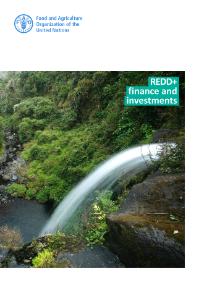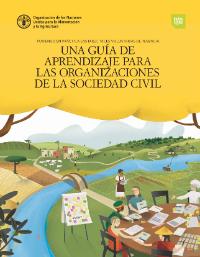Focal point
Location
The Food and Agriculture Organization of the United Nations leads international efforts to defeat hunger. Serving both developed and developing countries, FAO acts as a neutral forum where all nations meet as equals to negotiate agreements and debate policy. FAO is also a source of knowledge and information. We help developing countries and countries in transition modernize and improve agriculture, forestry and fisheries practices and ensure good nutrition for all. Since our founding in 1945, we have focused special attention on developing rural areas, home to 70 percent of the world's poor and hungry people.
Members:
Resources
Displaying 321 - 325 of 5074Marine Fishery Resources Of The Bay Of Bengal, Project BOBP/WP/36
This paper attempts to summarize available knowledge, and identify the gaps in that knowledge, on marine fisheries and fishery resources in the Bay of Bengal region. It provides information on Bangladesh, Burma, India, Indonesia, Maldives, Malaysia, Sri Lanka and Thailand—their marine fisheries, fishery resources, status of important stocks, etc.
Land and forest tenure reform to support REDD+ implementation
Land and forest tenure systems greatly influence a country’s ability to reduce deforestation and forest degradation. Clear and legitimate tenure rights over forests can provide an incentive to manage forests sustainably and simultaneously reduce deforestation and forest degradation. In fact, communities and stakeholders with secure tenure rights have a strong interest in investing time and resources to maintain and enhance the natural capital under a long-term vision.
Food systems for an urbanizing world
Food Systems for an Urbanizing World is a joint report prepared by the World Bank and FAO. It aims to stimulate discussion and suggest pathways to support local and national governments, and civil society and private sector actors in their efforts to improve the performance and capacity of food systems. The report describes the diversity and ever-changing nature of food systems, with interlinked traditional, modern and informal channels that respond to different market segments and different consumer preferences.
REDD+ finance and investments
To implement the ambitious REDD+ actions required to halve deforestation and forest degradation, developing countries need to adopt innovative and ambitious financing approaches. Financing to shift land-based investments and achieve deforestation-free commodity production is estimated at USD 200 billion, of which approximately USD 17-28 billion is needed for REDD+, an ambitious amount given the current level of climate finance.
Poniendo en práctica las Directrices Voluntarias de Tenencia: Una Guía de Aprendizaje para las Organizaciones de la Sociedad Civil
Poniendo en práctica las Directrices Voluntarias de Tenencia: una Guía de Aprendizaje para las Organizaciones de la Sociedad Civil ha sido diseñada específicamente con el fin de proporcionar a las organizaciones de la sociedad civil y de base un entendimiento más profundo de las Directrices. Esta guía de aprendizaje ofrece a las organizaciones de la sociedad civil una metodología y un conjunto de materiales para llevar a cabo iniciativas de capacitación sobre las Directrices con actores de la so ciedad civil desde las bases hasta el nivel nacional.











